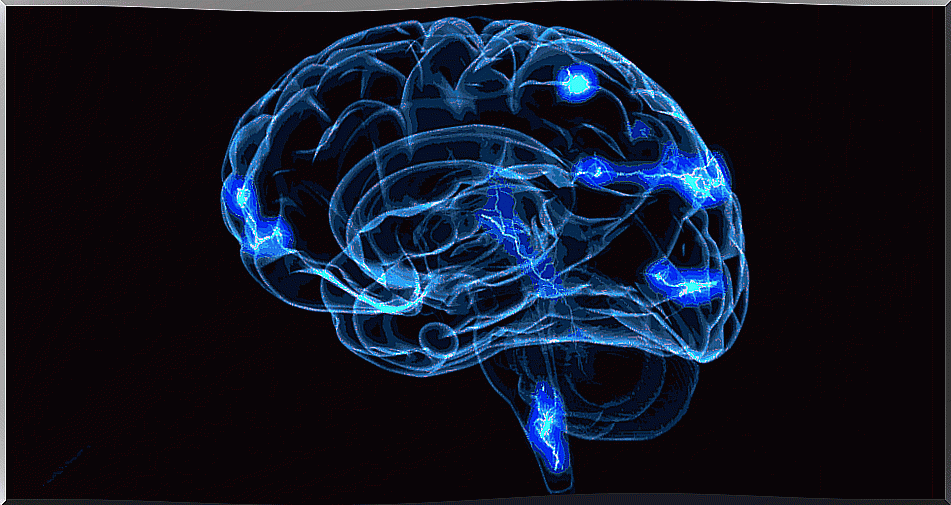Relapse During Mourning: Not Knowing How To Get Out Of The Tunnel

Relapse during bereavement occurs more frequently than we think. Far from understanding it as a relegation, it must be seen as a predictable, normal event along the process. Taking two steps back is sometimes the best strategy to take a run. After all, no one gets out of the tunnel in two days; it is a long journey during which stops and retreats are common.
Any therapist experienced in depression, anxiety disorders, addictions, and other mental illnesses knows that their clinical strategy must include a good relapse prevention program. In addition to the professional, however, it is necessary that the subject also takes this possibility into consideration.
Those who are grieving very often expect this occasion, sometimes crude and impossible to bear, to pass as soon as possible; above all else in the world he wishes there would come a time when he can finally breathe painlessly and sleep for several consecutive hours without waking up to tears. We conceive the healing process as a straight line in which with each step we reduce the distance to the extreme that marks the end.
It is important to understand that it doesn’t always work that way. It is common that at a given moment and almost without knowing why we take two steps back or, even worse, we return to the starting point. To prevent this from happening and lead us into a state in which the relapse is experienced worse than the fall itself, we must be prepared with a good “arsenal” of strategies that protect us and resources that stimulate us.

Relapse during the whole: why does it happen?
According to a study published in the journal Biological Psychiatry , the way we process information will determine whether or not a possible relapse during bereavement. For example, through magnetic resonance it was possible to see that there are different “types” of brains, some more able than others to react to traumatic, complex or stressful events.
Some people will cope better with grief, because their mental approach is more resilient as their thinking pattern is more resilient and flexible. Other people, on the other hand, have slower progress and continuous retrocessions, because they have a tendency to anchor themselves to excessive mental rumination and because they process stimuli in a more negative way. All this causes a greater nervous breakdown and a waste of energy that exhaust the subject at a time when it is difficult to continue.
However, the existence of different ways of processing information and very heterogeneous mental approaches does not mean that certain people are forced to continually suffer from a relapse during bereavement. A well-known fact about the brain is that it has exceptional plasticity and that it is possible for us to train it, shape it to smooth out those edges that make us most vulnerable. We can all do it, let’s see how.

Strategies for avoiding relapse during bereavement
As already mentioned, good psychologists and health professionals know that to treat any disease, disorder or problematic event, two action plans are necessary: the actual intervention strategy and some steps to avoid relapses and maintain the state in which the patient finds strength and breath to continue.
Below we invite you to reflect on some of these points that we can apply in our daily life.
Accept the possibility of a relapse during bereavement
Sometimes, due to life circumstances, we find ourselves forced to learn to “walk” again. A loss, physical or emotional, predicts a fall, a mourning in which the world collapses and we are forced to rebuild it, to learn to walk once again.
During this process it is common to take one step forward and two steps back. We must not see it as a problem, as a clue that it is impossible for us to continue. We must understand, however, that sometimes you have to take a few steps back to take a run.
Relapses can take many forms
Attention must be paid to the forms in which relapses usually materialize. Being careful will allow us to react faster.
- It is common for relapses to materialize through discouragement and moodiness.
- You may experience fatigue and loss of energy or experience the need to be busy all the time. In this case we need to do many things to “not think”.
- We need to be careful about the abuse of certain substances. For example, there are those who begin to feel the need to drink alcohol or to resort to the abuse of certain drugs.

Mindfulness to prevent relapse
The practice of full attention is very useful for all people who have suffered from depression, who have just suffered a bereavement or even for those who are overcoming a form of addiction. Thanks to it, the person gains greater mental control and opens more powerful channels to manage anxiety.
- Mindfulness is particularly suitable for regulating negative or repetitive thought patterns by giving inner calm and better regulation of emotions such as anger, frustration or sadness.
- Full attention offers the patient adequate resources to foster a correct inner dialogue, reflective awareness and that connection with oneself thanks to which to identify needs, fears or anxiety in order to be able to react instantly.
Finally, it should be noted that the practice of mindfulness requires constancy, that is, knowing how to introduce it into your daily routine so that it is truly beneficial and helps us to mitigate a relapse.









